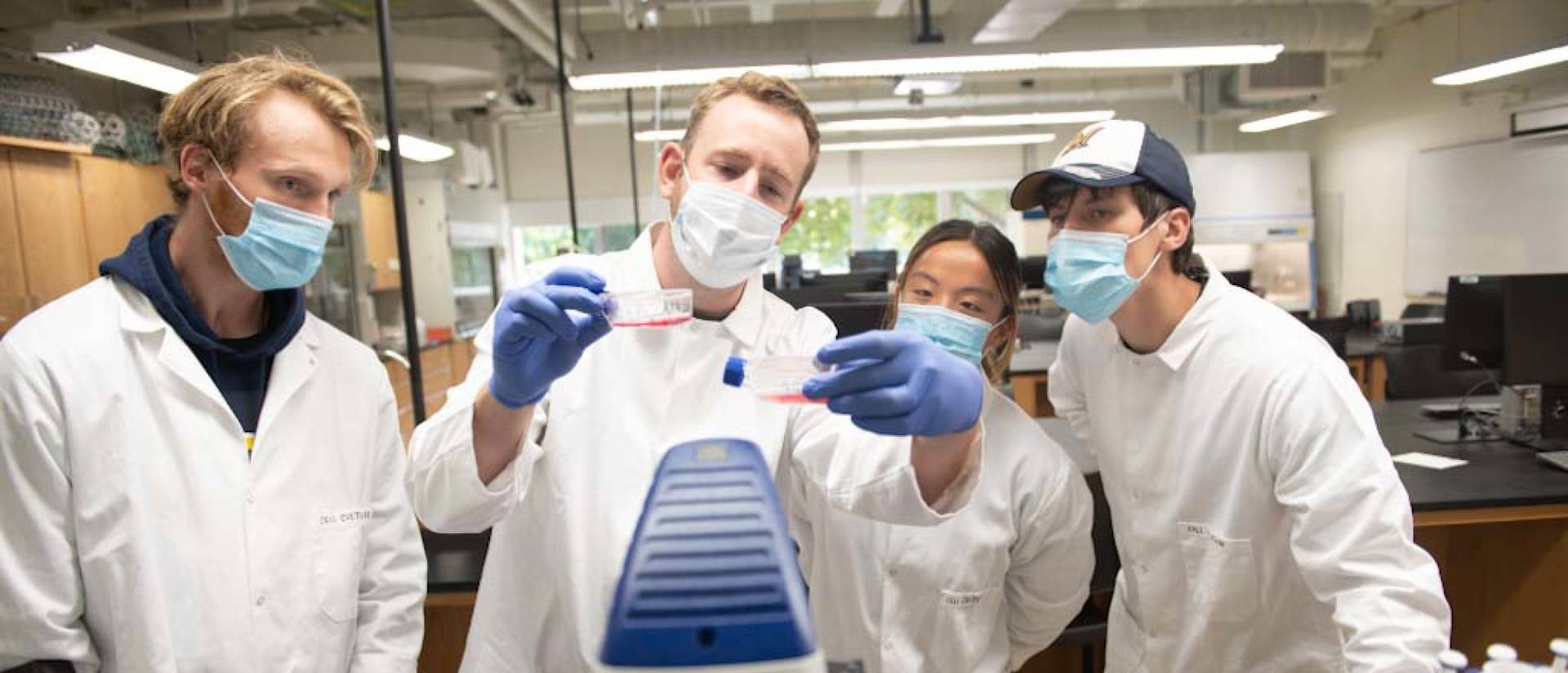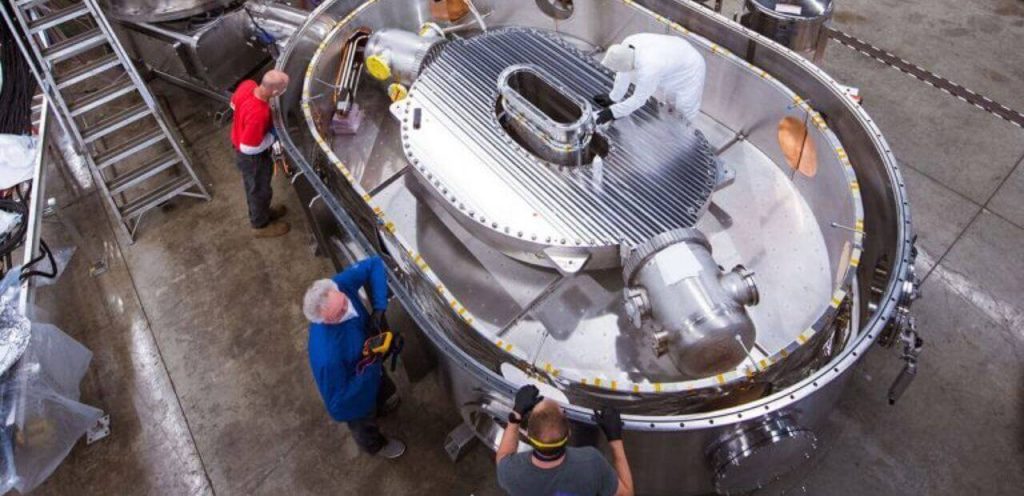Biomedical Engineering major is a blend of biology, mathematics, physics, chemistry, and engineering science. This program equips students to develop innovative solutions for medical and industrial applications.
Embarking on a journey in biomedical engineering offers a challenging yet rewarding path, as students delve deep into health-related topics and work towards creating cutting-edge technologies for human health. The curriculum typically includes a mix of theoretical courses, hands-on laboratories, and real-world projects that prepare graduates to address complex issues in medicine and biology.
As the demand for healthcare solutions continues to rise, biomedical engineers play a crucial role in advancing medical research and improving patient outcomes. If you possess a passion for problem-solving and a keen interest in merging science and engineering, pursuing a major in biomedical engineering can be a fulfilling choice for your academic and professional development.
The Growing Field Of Biomedical Engineering
What Is Biomedical Engineering?
Biomedical Engineering involves applying engineering principles to create solutions for healthcare challenges, spanning medical devices, diagnostic equipment, and biomedical technologies.Importance Of Biomedical Engineering
- Enhances medical treatments through innovative technologies.
- Improves patient care and outcomes with advanced devices.
- Contributes to the evolution of healthcare practices and precision medicine.

Credit: www.bme.cornell.edu
Becoming A Biomedical Engineering Major
Are you interested in a field that applies engineering principles to solve medical and biological challenges? A major in biomedical engineering equips you with a strong foundation in biology, mathematics, engineering, and clinical applications to develop innovative solutions. This rewarding career path offers opportunities in various sectors and is an excellent choice for those passionate about making a difference in healthcare.
Educational Pathway
To become a biomedical engineering major, it is essential to follow the right educational pathway. At the undergraduate level, prospective bioengineers should pursue a bachelor’s degree in fields such as bioengineering, biomedical, or other related engineering disciplines. It is also beneficial for students to take biological science courses to gain a comprehensive understanding of the field. The program typically includes a strong foundation in biology, mathematics, physics, chemistry, and engineering science, which helps to develop a clinically oriented biomedical engineer to serve the medical and industrial needs.
Skills Required For Success
Success in the field of biomedical engineering requires a combination of technical skills and personal qualities. Some essential skills for aspiring biomedical engineering majors include a strong foundation in mathematics and sciences, problem-solving abilities, and critical thinking skills. Additionally, effective communication and teamwork skills are vital, as biomedical engineers often collaborate with healthcare professionals and other engineers to develop innovative solutions. Attention to detail and the ability to adapt to new technologies and advancements are also important traits for success in this field.
Is It Worth Pursuing?
Choosing a major is an important decision, and you may wonder if pursuing a biomedical engineering major is worth it. The answer lies in your passion for science, engineering, and healthcare. A career as a biomedical engineer offers numerous opportunities to make a positive impact on people’s lives. You will have the chance to develop practical solutions to real-world problems through critical thinking and evaluation skills. If you enjoy using these skills to overcome obstacles and develop innovative solutions, a career in biomedical engineering can provide you with job satisfaction.
Exploring Biomedical Engineering Programs
Are you passionate about blending the worlds of medicine and engineering? If so, a major in biomedical engineering might be the perfect fit for you. As a biomedical engineering major, you’ll have the opportunity to use your analytical skills and technical knowledge to develop innovative solutions to pressing issues in medicine and biology. But with so many programs out there, how do you find the right one for you?
Finding The Right Program
When it comes to choosing a biomedical engineering program, it’s important to consider several factors. Firstly, you’ll want to assess the program’s curriculum and ensure it aligns with your career goals. Look for programs that offer a strong foundation in biology, mathematics, physics, chemistry, and engineering science. Additionally, seek out programs that provide hands-on experience through courses and laboratories in biomedical engineering, physiology, and biology. Another key factor to consider is the program’s accreditation. Accreditation ensures that the program meets certain standards of quality and that your degree will be recognized by employers and graduate schools. Look for programs that are accredited by reputable organizations like the Accreditation Board for Engineering and Technology (ABET). Furthermore, take a look at the faculty at each program you’re considering. Research the background and expertise of the professors, as they will be your mentors and guides throughout your academic journey. Look for faculty members who are actively engaged in research and have experience in the field of biomedical engineering. Lastly, don’t forget to consider the location and size of the college or university. Think about whether you prefer a large, research-intensive institution or a smaller, more intimate campus. Consider if you want to be close to specific industries or research facilities that align with your interests in biomedical engineering.
List Of Colleges Offering Biomedical Engineering Major
Here is a list of reputable colleges and universities offering a major in biomedical engineering:
| College/University | Location |
|---|---|
| Massachusetts Institute of Technology (MIT) | Cambridge, MA |
| Stanford University | Stanford, CA |
| Johns Hopkins University | Baltimore, MD |
| University of California, Berkeley | Berkeley, CA |
| Duke University | Durham, NC |
This list is by no means exhaustive, but it provides a starting point for your research. When exploring these programs, be sure to visit the websites of each institution to gather more information about their specific admission requirements and program details. Reach out to current students or alumni to gain insights into their experiences and the opportunities available. By carefully considering these factors and conducting thorough research, you’ll be well on your way to finding the perfect biomedical engineering program that aligns with your interests and goals. Good luck on your journey to becoming a biomedical engineer!

Credit: www.uwec.edu
Understanding The Biomedical Engineering Degree
Biomedical engineering majors blend principles of engineering with biological and medical sciences to innovate in healthcare. Graduates pursue diverse careers in medical device companies, research institutions, hospitals, and biotechnology firms.
Diving Into The Biomedical Engineering Curriculum
As a Biomedical Engineering major, you will delve into a diverse and engaging curriculum that blends the principles of engineering, biology, and healthcare. The curriculum offers a deep understanding of cutting-edge technologies, enabling you to develop innovative solutions for medical challenges.
Core Subjects
The core subjects in the Biomedical Engineering curriculum are carefully designed to provide a strong foundation in both engineering and life sciences. Students focus on biology, mathematics, physics, chemistry, and engineering science. The curriculum includes comprehensive courses and laboratories in biomedical engineering, physiology, and biology.
Advanced Specializations
Students pursuing a Biomedical Engineering major have the opportunity to explore advanced specializations tailored to their interests and career goals. These may include biomechanics, tissue engineering, medical imaging, biomaterials, and biomedical instrumentation. The program allows students to gain in-depth knowledge and hands-on experience in their chosen area of focus.
Career Paths In Biomedical Engineering
Embarking on a major in Biomedical Engineering opens up a plethora of career paths, offering opportunities that blend technological innovation, healthcare, and research. Here, we delve into the diverse avenues that await graduates in this dynamic field. Biomedical engineers can immerse themselves in a wide array of industries, playing a pivotal role in the development and enhancement of medical devices, equipment, and systems. The industry opportunities in this field are extensive and include segments such as:
- Medical device manufacturing
- Pharmaceuticals and biotechnology
- Healthcare facilities and hospitals
- Regulatory agencies and compliance
Research and development (R&D) is a cornerstone of the biomedical engineering domain, fostering advancements in medical technologies and treatment procedures. Within R&D roles, professionals engage in:
- Conducting clinical trials and experiments
- Designing and prototyping innovative medical devices
- Assessing the efficacy and safety of biomedical solutions
- Collaborating with medical professionals and scientists
Challenges And Rewards Of Biomedical Engineering
Delving into Biomedical Engineering presents both challenges and rewards. From overcoming technical obstacles to contributing to groundbreaking healthcare advancements, pursuing a career in this field offers a unique blend of difficulties and achievements.
Difficulties Faced
Embarking on a Biomedical Engineering journey brings forth a set of challenges:
- Complexity of integrating engineering principles with medical knowledge
- Constant need for innovation due to rapidly evolving technologies
- Stringent regulatory requirements for medical device development
Impact On Healthcare Innovations
The field of Biomedical Engineering plays a pivotal role in healthcare advancements:
- Development of advanced medical devices for diagnosis and treatment
- Improvement of healthcare accessibility through technology
- Enhancement of patient outcomes and quality of life
Beyond The Bachelor’s Degree
Once you have successfully completed your bachelor’s degree in Biomedical Engineering, a world of opportunities awaits you. With the rapid advancements in technology and the growing demand for healthcare solutions, this field offers a range of possibilities for further education, professional development, and meaningful careers.
Graduate Studies
Graduate studies in Biomedical Engineering can open doors to advanced research, academic careers, and higher-paying job prospects. Pursuing a master’s or doctoral degree allows you to specialize in areas such as tissue engineering, biomaterials, medical imaging, or biomechanics. By diving deeper into these subfields, you can contribute to groundbreaking discoveries and make a significant impact in the healthcare industry. Here are some benefits of pursuing graduate studies in Biomedical Engineering:
- Advanced Knowledge: Graduate programs provide you with an in-depth understanding of the complexities of biomedical engineering, equipping you with the expertise required to solve complex problems.
- Research Opportunities: Master’s and Ph.D. programs offer plenty of research opportunities, enabling you to collaborate with leading experts and work on cutting-edge projects.
- Career Advancement: Advanced degrees can enhance your credentials and open doors to higher-level positions in academia, research institutions, and industry.
Professional Development
Continuing professional development is crucial for biomedical engineers to stay updated with the latest advancements and stay competitive in the job market. Here are some avenues for professional development beyond the bachelor’s degree:
- Industry Certifications: Obtaining industry certifications enhances your skills and demonstrates your expertise in specific areas, such as medical device design or regulatory compliance.
- Conferences and Workshops: Attending conferences and workshops allows you to network with professionals, learn from experts, and stay informed about the latest research and technological advancements.
- Continuing Education: Taking specialized courses or pursuing additional certifications can help you acquire new skills and knowledge that can be applied directly to your work.
Investing in your professional development not only expands your knowledge base but also showcases your commitment to staying at the forefront of the field, making you a valuable asset to employers and increasing your career prospects.

Credit: engineeringexpectations.com
Frequently Asked Questions
What Is The Best Major For Biomedical Engineering?
At the bachelor’s level, studying bioengineering, biomedical, or other types of engineering is ideal for aspiring biomedical engineers. Those pursuing mechanical or electrical engineering degrees can also benefit from taking biological science courses. This provides a well-rounded foundation for a career in biomedical engineering.
What Do Biomedical Engineers Major In?
Biomedical engineers major in bioengineering, biomedical, or other engineering fields, with a focus on biology, mathematics, and engineering science. They learn to develop solutions for medical and industrial needs through courses in biomedical engineering, physiology, and biology.
Is Biomedical Engineering A Difficult Major?
Biomedical engineering is a challenging major due to its heavy focus on chemistry and biology. Students tackle health-related topics and design new medical devices, making it one of the toughest engineering disciplines.
Is Majoring In Biomedical Engineering Worth It?
Yes, majoring in biomedical engineering is worth it if you enjoy critical thinking and problem-solving. A biomedical engineering degree allows you to develop practical solutions to real-world medical and biological issues, providing job satisfaction.
What Are The Best Majors For Biomedical Engineering?
Prospective bioengineers should study bioengineering, biomedical, or related engineering fields at the bachelor’s level.
What Coursework Is Involved In Biomedical Engineering Major?
Biology, mathematics, physics, chemistry, and engineering science form the foundation of the program. It covers biomedical engineering, physiology, and biology.
How Challenging Is A Major In Biomedical Engineering?
Biomedical Engineering is known to be among the toughest engineering majors due to its focus on health-related topics, chemistry, and biology.
Is Pursuing A Biomedical Engineering Major Worth It?
Developing critical thinking and evaluation skills to solve real-world problems is essential for biomedical engineers and can lead to a fulfilling career.
Conclusion
A major in biomedical engineering offers a promising career path, combining science and engineering techniques to address issues in medicine and biology. The program equips students with the necessary knowledge in biology, mathematics, physics, chemistry, and engineering to develop innovative solutions for the medical and industrial sectors.
With critical thinking and problem-solving skills, biomedical engineers have the opportunity to make a meaningful impact on improving human health. Consider pursuing a biomedical engineering major for a fulfilling and rewarding career in this field.









